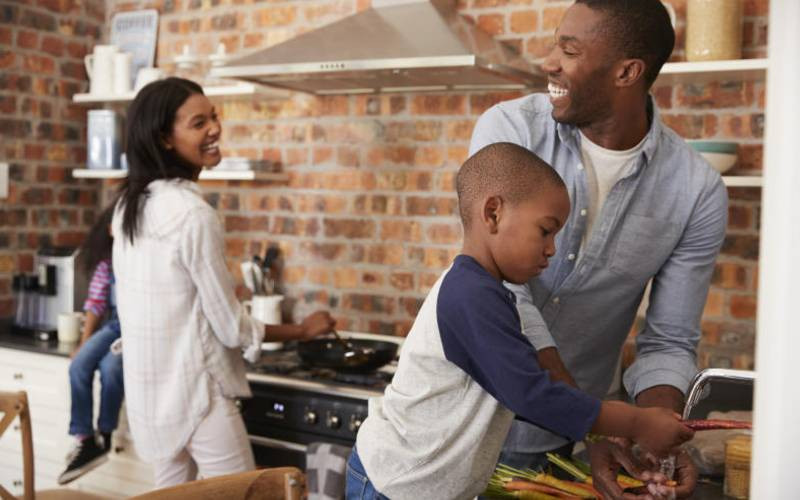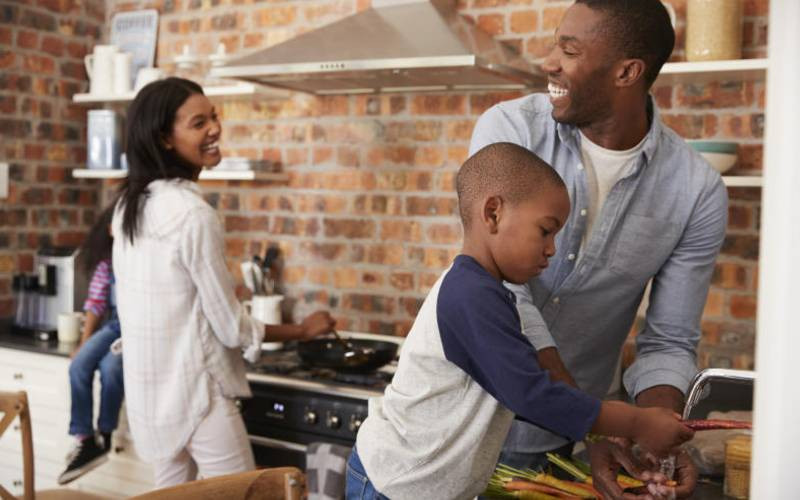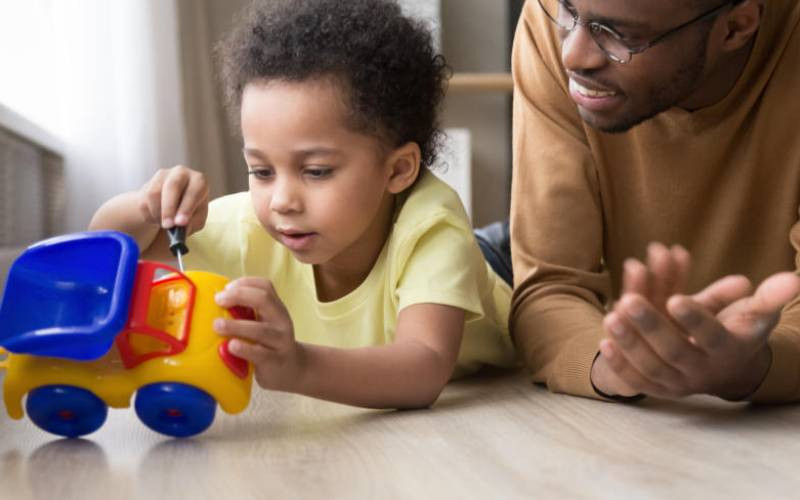
Your child will eventually take an interest in her body and begin to discover her own sexuality. This is a normal and inevitable part of growing up, and definitely neither ‘dirty’ nor immoral. A parent’s attitude is all part of teaching the child.
In their third year, children discover that the sensations from their genitals are particularly pleasant. Before then, stimulation of the genital area has been more or less accidental. Now, when children explore their bodies, they find that touching the genitals gives them pleasure.
This is where the parents’ attitude is crucial. Such behaviour is quite normal and parents shouldn’t over-react, make a fuss or shout: “Stop that immediately!” To do so puts across the idea that sex is something dirty and sinful, and that is quite wrong.
As she grows towards school age, you will encounter sexual behaviour and, again, attitude is all-important. Young children go into bedrooms and strip off and look at each other’s bodies. This is all just a part of their natural curiosity.
Most sexual behaviour of young children is part of pride - and curiosity-concerning their own bodily functions. If you over-react, you’ll cause the child to look upon that part of the body as dirty and shameful. That simply isn’t true, so it’s important that you react calmly. Talk firmly, calmly; how you go about it is vital.
There may be certain sexual activities that you will want to discourage. Your two young children go off to the bedroom and tickle each other’s genitals, or get into bed with each other and simulate the sex act. How do you react? Here are six things to remember:
1. Sex games are not perversions but a normal way of young children finding out about the human body. It reassures them that, despite the differences in anatomy between boys and girls, there is nothing wrong with them.
2. If you want a sex game to stop, say so. Say it calmly and firmly. Don’t say silly things like: ‘What are you doing?’ that’s quite obvious. Make it perfectly clear to them what it is you don’t want them to do.
3. Give the children words to describe their experiences. “You wanted to see John’s penis’ (not willy’ or other euphemisms). “You wanted to know how Joan urinated.” Children want to understand. Talk about these things in a down-to-earth, factual way and don’t imply that any of it is ‘dirty.’ It isn’t.
4. Tell the children what you got up to when you were a child. This is reassuring to them and makes you a human being rather than a saint. Don’t put ideas into their heads of course but, whatever you do, don’t make your children afraid of sex, or love.
5. Say no when you need to. You are entitled to say: “Don’t touch joy’s vagina” or (‘Stop playing with your penis’).
You set the limits, the bounds of reality. Children will accept them.
6. Have a sense of humour. Often, the positive way a parent reacts to the sexual experiences of a child lays down the foundation for a healthy and joyous adulthood. React in a way that gives the child self-respect and avoids endless feelings of shame concerning her own body.
Children learn what they live. If they live with guilt or shame, they’ll grow up feeling guilty and ashamed. If they live with openness and honesty, they’ll grow up open and honest, able to express their feelings rather than hiding them, or thinking they are abnormal.
 The Standard Group Plc is a multi-media organization with investments in media platforms spanning newspaper print
operations, television, radio broadcasting, digital and online services. The Standard Group is recognized as a
leading multi-media house in Kenya with a key influence in matters of national and international interest.
The Standard Group Plc is a multi-media organization with investments in media platforms spanning newspaper print
operations, television, radio broadcasting, digital and online services. The Standard Group is recognized as a
leading multi-media house in Kenya with a key influence in matters of national and international interest.










